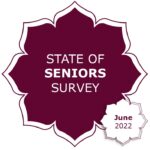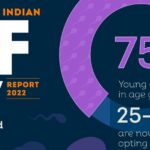Unrealistic optimism may be behind breaking lockdown and curfew. The survey highlights that 60.5% of people are worried about the health of their family members, while 45.3% are confident that Govt. will handle COVID-19 pandemic situation.


As per the survey findings, 33.4% of people believe that it will subside soon whereas 21.5% believes these diseases keep coming and going. Additionally, 26.8% believe in destiny, what has to happen will happen and 17.4% thinks Indian have high immunity to fight such infection. With such a belief system and mindset, it is quite easy to cross the thin line between realistic and unrealistic optimism. This survey has been conducted under Healthy Nudge Initiative of HEAL Foundation – Indian Health Advocacy Group, in association with Counselling & Empowering -Enhancing Well-Being and Mental Health, to understand people’s perception of the impending danger of COVID-19. The survey has tried to find out people’s optimism level amidst COVID 19.


Adding further, he says, “The unrealistic optimism of the masses around the casual approach that this is a routine sort of thing might have resisted the people from social distancing, resulting in the havoc. But the result of the survey about unrealistic optimism also points toward the importance and the essence of social distancing, which has turned out to be the most effective preventive measure for COVID-19. Thus, the initiative is proactively doing its bit to keep the masses updated with the latest developments around the pandemic, and inculcating them to follow the preventive measures such as social distancing and healthy hygiene to cease its upsurge”.
The survey was conducted online with a gender-mixed sample size of 366 with a male & female ratio 46:54 from different parts of the country, majorly in Delhi/NCR. Globally recognised LOR-T form was used to asses people’s optimism disposition levels and then they were asked if there has been an impact on their optimism levels due to the COVID19 outbreak. Likewise, certain statistics of the survey also highlighted the unrealistic optimism of the people as 33.8% believed that such diseases come and go, so there is no need to worry as nothing is going to happen. In the same line, 17.6% believed that Indians have high immunity, so it’s a usual thing and not something that requires one to be extra careful or diligent.


She adds further, “Unrealistic Optimism is when one makes a judgement of a risk which is very different from the objective standard of that particular risk. This cognitive bias often leads to misplaced hope and subsequent disappointment.What could be consequences of unrealistic optimism in the current situation of the COVID-19 outbreak? It could lead to being less prepared, taking lesser precautions, not wearing a mask if one has a cough, not getting oneself tested while experiencing symptoms similar to COVID-19 as one believes that they are in a low risk or no risk situation. Growing research indicates that people with tendencies to hold the positive expectation from the future, respond to obstacles and adversities in ways that are adaptive. Hence, while it’s great to be optimistic, however, let’s be aware of being unrealistically optimistic by cultivating and maintaining optimistic disposition and at the same time considering the risks of actions from a realistic angle.











